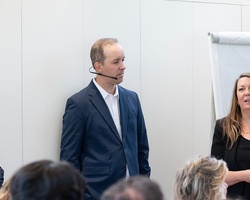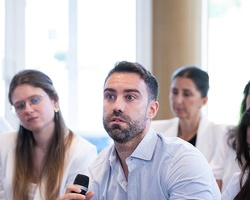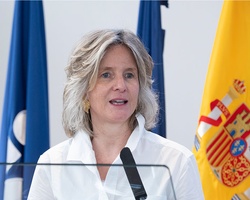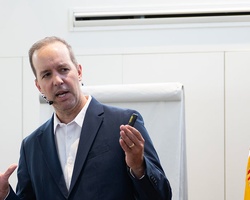- Home
- We Are Law School
- News
- The Ie–ecija Digital Law Observatory Concludes The Academic Year With A Strategic Outlook On Ai And Digital Rights
The IE–ECIJA Digital Law Observatory concludes the academic year with a strategic outlook on AI and digital rights
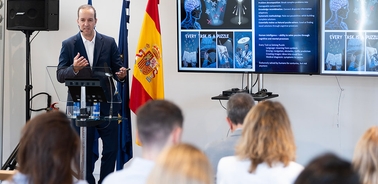
The event addressed the regulatory challenges of AI and presented the report Consumer Protection in the Digital Age, featuring a masterclass by Norberto de Andrade, Professor at IE Law School and former Director of AI Policy at Meta.
The IE–ECIJA Digital Law Observatory concluded its academic year on Monday, July 1, with an event that combined the presentation of its fourth annual report with a compelling masterclass on the regulatory challenges of artificial intelligence (AI). The session featured Norberto de Andrade, Adjunct Professor and Academic Director at IE Law School and former Director of AI Policy at Meta, a globally recognized expert in public policy and tech regulation.
The event opened with remarks by Soledad Atienza, Dean of IE Law School, who emphasized the Observatory’s role as a hub for legal research in the face of ongoing digital transformation in the legal sector.
The report presented during the event, Consumer Protection in the Digital Age, highlights the profound transformation of the European regulatory landscape, driven by frameworks such as the DSA, DMA, and the Omnibus Directive. These instruments are reshaping the digital consumer experience through enhanced transparency, protection, and empowerment. The report further stresses the need for companies to take a proactive, structural approach to compliance, integrating algorithmic transparency, effective redress mechanisms, and safeguards against automated decision-making.
The highlight of the day was Norberto de Andrade’s keynote address, “Navigating the AI Governance Maze: Forged Identities, Experimentation Ventures & Conflicting Regulatory Directions.” Using powerful visual analogies and a multidisciplinary approach, Andrade unpacked the complex legal and technical architecture of AI systems—data, algorithms, infrastructure, and outputs—and advocated for more agile, experimental, and adaptive governance models, such as AI Regulatory Sandboxes.
He also addressed pressing ethical and legal risks related to personal identity in AI systems, including the rise of deepfakes and the use of biometric data.
The event concluded with closing remarks by Macarena Plaza, Director of International Corporate Development and Legal Innovation at IE Law School, and Alejandro Touriño, Managing Partner at ECIJA. Both celebrated the Observatory’s three-year journey as a dynamic platform for thought leadership on the legal challenges of the digital economy.
About the IE-ECIJA Digital Law Observatory
The IE–ECIJA Digital Law Observatory was established with the purpose of exploring and researching the diverse legal dimensions and implications of the digital economy. The Observatory aims to become a platform for legal and academic research and dissemination within this new legal framework.
